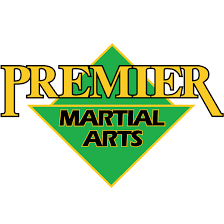Premier Martial Arts is a martial arts school offering programs for individuals of all ages and skill levels. The franchise provides classes in various disciplines, fostering discipline, fitness, and personal growth.

Key Insights
- Premier Martial Arts has a significant history built on a foundation of martial arts expertise and a dedication to personal development, establishing a strong presence in communities. The business model focuses on providing structured martial arts programs for all ages, fostering discipline, confidence, and healthy lifestyles through its engaging curriculum.
- The franchise operates with a comprehensive support system for its franchisees, offering training, marketing assistance, and operational guidance to ensure consistent quality and brand representation. This approach allows for scalable growth and a streamlined business experience for those joining the network.
- Operating within the dynamic fitness and wellness sector, Premier Martial Arts caters to a growing demand for health-focused activities and skill-building programs. The industry shows consistent interest in personal enrichment and community-based fitness solutions.

Franchise Fee and Costs to Open
Exploring the financial picture of Premier Martial Arts gives insight into both the upfront commitment and the potential revenue opportunity. According to FDD Item 7, opening this franchise typically involves an investment in the range of $108,476 - $318,237, along with a franchise fee of $49,500 - $49,500.
Financial Performance and Revenue
Yearly gross sales of $305,081 and estimated earnings of $36,610 - $45,763 show the potential financial performance of this franchise. These figures are crucial for prospective franchisees as they help to project revenue and profitability. They offer insight into the business's ability to generate income and can be used to compare its performance against other investment opportunities. The Franchise Payback Period of 5.7-7.7 provides an estimation of the time it might take for an owner to recover their initial investment. This metric is a key consideration for anyone evaluating the financial viability of a franchise, as it relates directly to the speed at which the business can become profitable. A shorter payback period can indicate a faster return on capital, which is a significant factor in making an informed decision about a franchise investment.
Training and Resources
Premier Martial Arts provides comprehensive training and resources. Initial training is a three-week program conducted at their corporate headquarters. Premier Martial Arts offers extensive operational and marketing support, including pre-opening and ongoing guidance. Franchisees receive access to proprietary curriculum, marketing materials, and operational manuals. Premier Martial Arts recommends a phased approach to implementation, fostering a smooth launch and sustained growth for each new location.
Legal Considerations
Legal considerations for a Premier Martial Arts franchisee are outlined in the Franchise Disclosure Document (FDD) and the Franchise Agreement. Note that this franchise discloses lawsuits and/or bankruptcy information in its FDD, which may impact your evaluation. Subscribe now to access more details and be sure to consult a qualified attorney before proceeding.
Challenges and Risks
A franchisee may encounter challenges related to understanding local market dynamics and establishing a strong presence against existing fitness offerings. Managing the day-to-day operational requirements, including staff scheduling and student engagement, requires consistent attention. Furthermore, maintaining a steady supply of necessary equipment and branded materials can be influenced by external vendor relationships.



